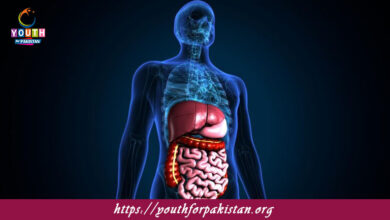Conjugated Molecules (Glycolipids, Glycoproteins) MDCAT Quiz with Answers

Conjugated Molecules: Glycolipids and Glycoproteins The conjugation of lipids or proteins with carbohydrate groups gives rise to molecules called glycolipids and glycoproteins, respectively. For MDCAT students, it is very important to understand the structure and function of glycolipids and glycoproteins to master various topics of cell membranes, cellular signaling, and immunity.
They play important roles in various biological processes, such as cell recognition, communication, and protection. In this post, we shall look at the structure, types, and functions of glycolipids and glycoproteins and their importance in MDCAT Quiz preparation. Glycolipids: Glycolipids are lipids that have attached carbohydrate chains and are generally found on the outer surface of the cell membrane. They are involved in the recognition of cells, and they contribute to the formation of lipid rafts—specialized microdomains that help in organizing cellular signaling. Understanding glycolipid structure and function will help MDCAT students answer questions on membrane biology and cell signaling. H2: Structure and Functions of Conjugated Molecules
MDCAT Quiz on Glycolipids and Glycoproteins Glycoproteins
on the other hand, are proteins with carbohydrate groups attached, and they play an important role in the immune system and cell communication. These molecules are involved in the recognition of foreign invaders, such as bacteria and viruses, and can be found in cell membranes or secreted into the bloodstream. For MDCAT Quiz preparation, it’s essential to understand how glycoproteins interact with receptors and enzymes in the immune response, as well as their role in protein stability and function.
Free Flashcard on Glycolipids and Glycoproteins
For effective MDCAT preparation, using a Free Flashcard is a great way to review key concepts related to glycolipids and glycoproteins. These flashcards offer quick insights into their structures, functions, and significance in cellular processes. By regularly practicing with these flashcards, students can reinforce their knowledge of cell membrane composition and immune function, both of which are vital for MDCAT exams.

What is the role of glycoproteins in cell-cell recognition?
Facilitate cell signaling and recognition

What is the carbohydrate portion of a glycoprotein usually attached to?
The protein’s amino acid side chain

What part of the glycolipid molecule interacts with water in the environment?
The hydrophilic carbohydrate group

What role do glycolipids play in the blood-brain barrier?
Prevent unwanted substances from entering the brain

What is the significance of the carbohydrate portion in glycoproteins?
It aids in cell recognition and communication
Experience the real exam environment with our expertly designed collection of over 25,000 MCQs MDCAT Mock Tests.





